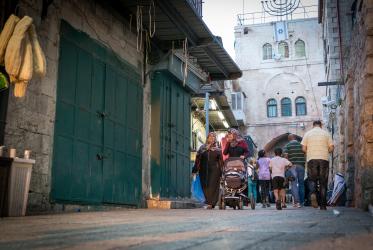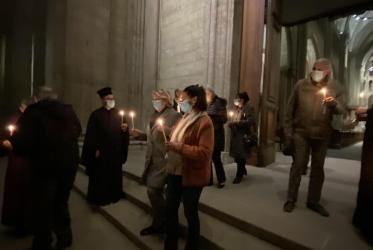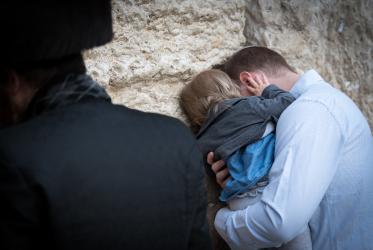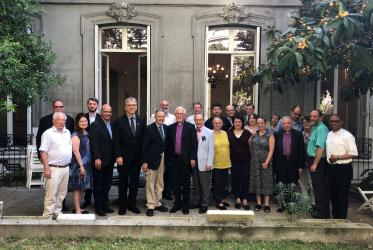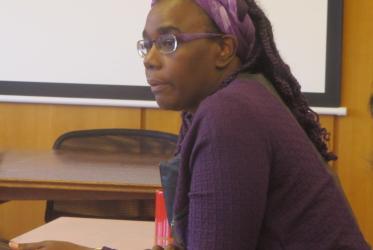Displaying 1 - 14 of 14
The ecumenical spirit at Calvin’s Cathedral
24 February 2021
WCC condemns attack in German synagogue on Yom Kippur
09 October 2019
Religion: Way of war or path to peace?
30 June 2016
Panel discussion fields ideas on European identity
26 April 2016
WCC condemns Brussels museum shootings
26 May 2014


